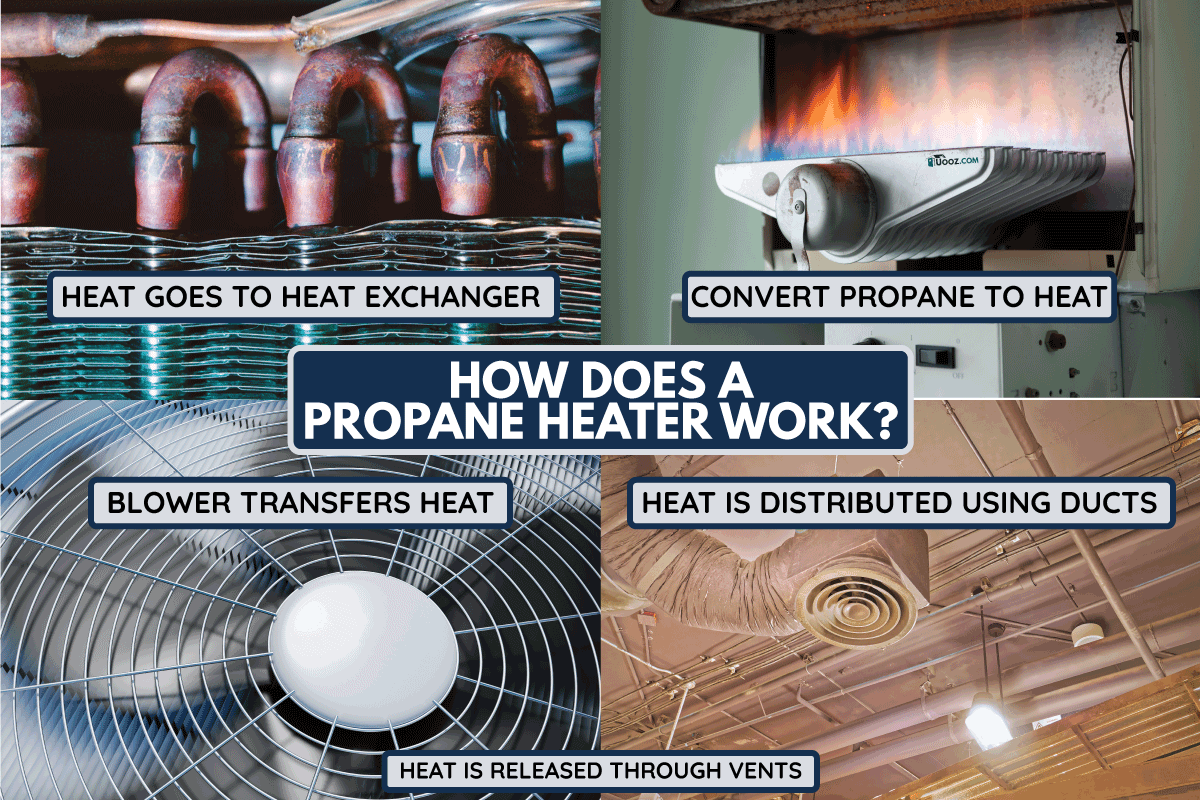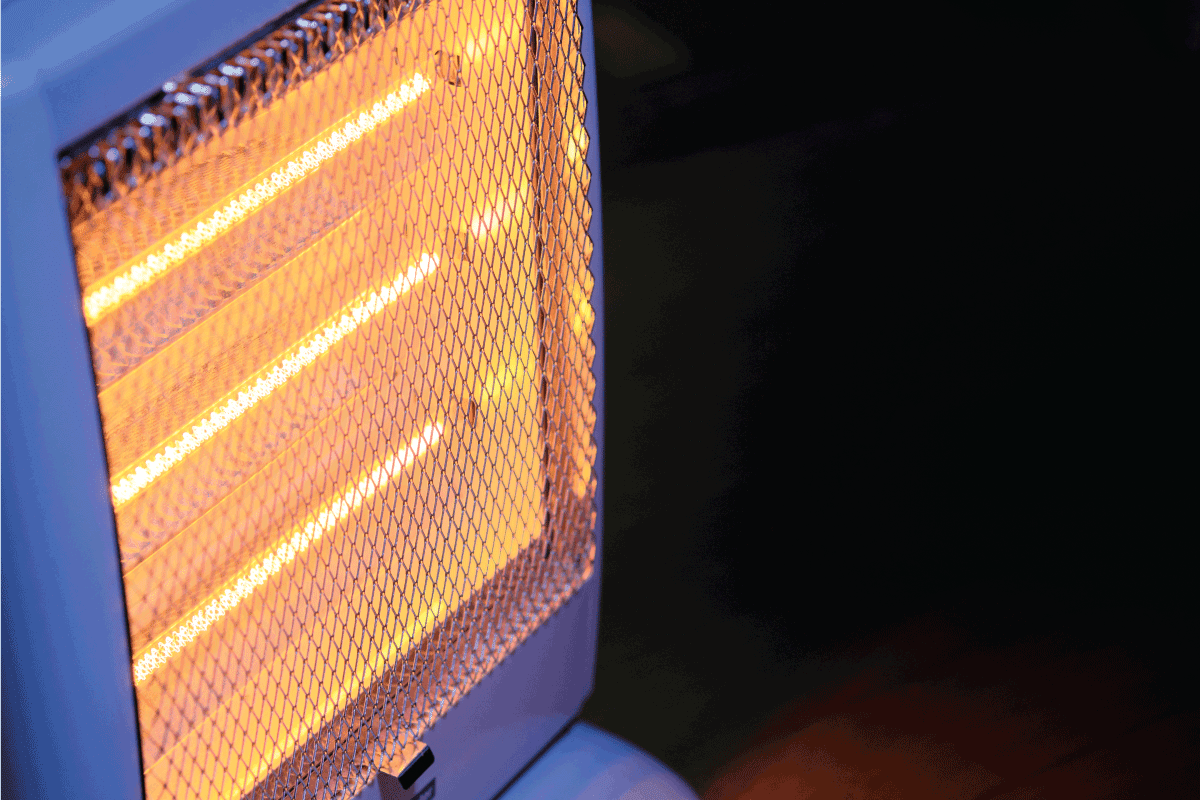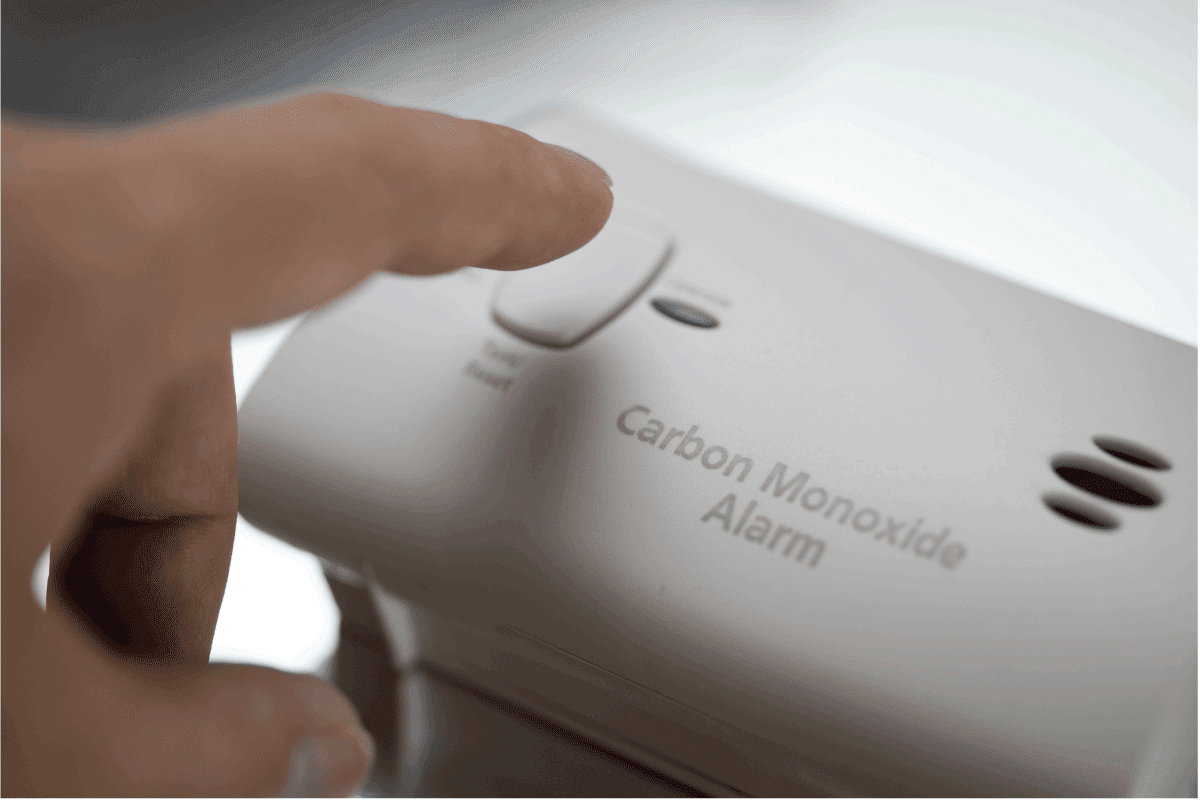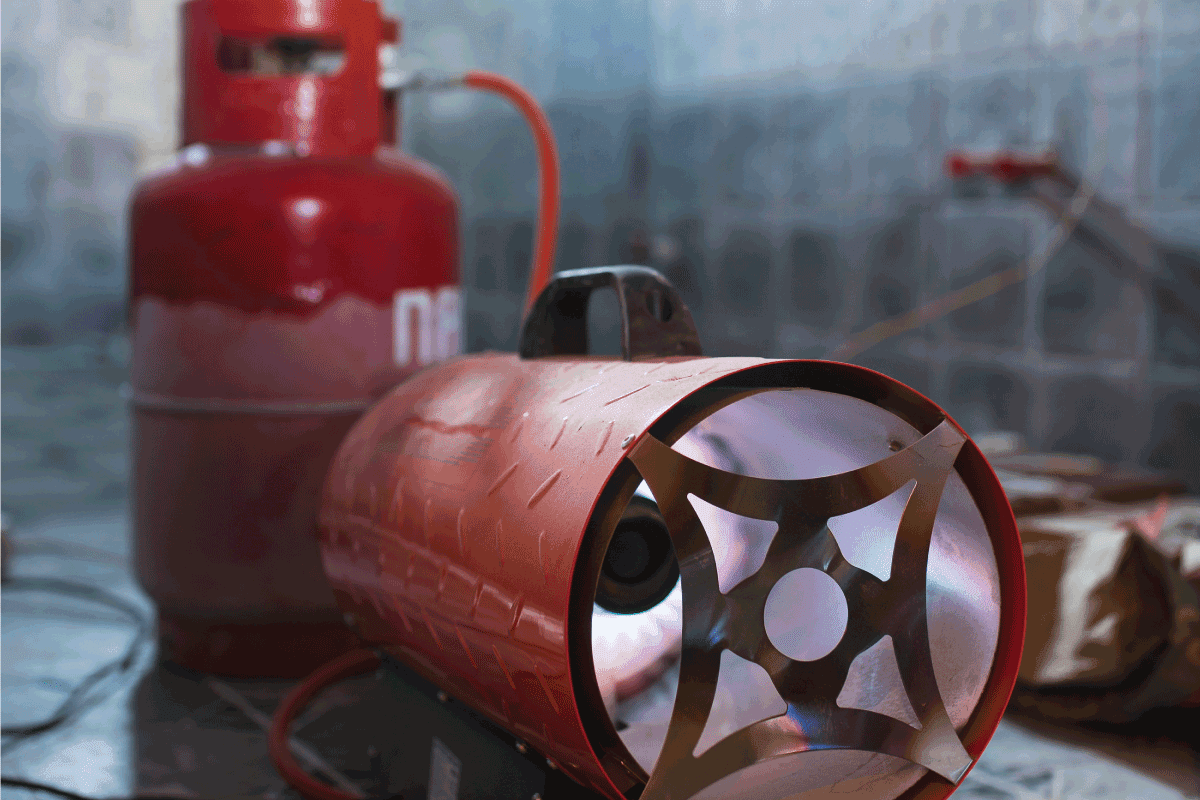The heaters in our home should give us the warmth we need, especially during the cold season. If we have no heater, our bodies will not be able to survive the cold weather. But do all heaters run using electricity? We have done research on this topic from the best resources to provide you with the answer.
Propane heaters that are portable do not need electricity. These heaters are run on propane gas. You can run these heaters outdoors or indoors even during power interruptions. A heating system, however, with a propane furnace has a fan and igniter that uses very minimal electricity.
Now that you know you can use propane heaters with zero to a little electricity, you may want to find out how efficient are these devices and how they actually work. Continue reading as we delve into more details about propane heaters.
How Does A Propane Heater Work?
A heater with a propane furnace works with propane gas. The igniter lights the flame using electricity. Then it goes through this step-by-step process:

- The liquid propane is converted to gas that produces heat.
- The heat goes to the heat exchanger until it reaches a specific point.
- The blower transfers the heat across the heat exchanger.
- The heat exchanger distributes the heat using the duct system.
- The duct system continues to distribute the heat through the vents.
A portable propane heater can be used without electricity. It is simply ignited with the use of a swivel-out regulator that is connected to a propane tank. It can also work with a remote gas supply as long it's equipped with an adequate length of hose and filter.
Click here to see this portable indoor propane heater on Amazon.
Click here to see this outdoor propane heater on Amazon.
What Is The Efficiency Rate of a Propane Heater?
The efficiency rate of propane heating equipment depends on the ratio of the burned fuel versus the converted heat. This is measured by the Annual Fuel Utilization Efficiency (AFUE), which tells us what percentage of propane gas is being converted to heat.
The AFUE of propane gas ranges from 79 to 85 percent for standard efficiency, and 88 to 95 percent for condensing efficiency. Heating equipment that uses propane gas is slightly less efficient compared to central or baseboard furnaces/boilers run by electricity with an almost 100 percent efficiency rate.

How Much Electricity Do Propane Heaters Use
Propane heaters use minimal electricity only to ignite the flame during hydrocarbon combustion and turn on the fan and start the cooling process after turning off the propane heater.
Igniting and running a propane heater requires around 600 watts of electricity. It translates to 0.6 kWh which will normally cost $0.072 per hr.

Are Propane Heaters Safe To Use Indoors?
Yes, propane heaters are safe indoors as long as you use them properly. You have to use them with care since propane is flammable.
How your heater releases smoke will depend on whether it's designed for indoor or outdoor usage. Place an outdoor-only propane heater in an area where there is proper ventilation. Not doing so will lead to carbon monoxide poisoning.
Carbon monoxide poisoning has a number of symptoms. These include dizziness, weakness, headache, upset stomach, chest pain, confusion, and vomiting.
As for indoor propane heaters, you can use them in enclosed spaces where there may be a lack of proper ventilation. Thanks to the manufacturing companies of propane heaters for designing automatic switches with oxygen sensors. These features detect if there is not enough oxygen inside the room. The propane heater then should shut down before the carbon monoxide reaches a critical level.
Click here to see this oxygen sensor on Amazon.
Indoor propane heaters may also be designed with carbon monoxide detectors, which should be placed some 3 feet away from the indoor propane heater.
Click here to see this carbon monoxide detector on Amazon.
Are indoor propane heaters safe to put in the garage?
Indoor propane heaters are safe to put in the garage. But again, you have to make sure there is proper ventilation. The door should be opened when using an indoor propane heater. For more information on the safety issues of propane heaters, you can watch this video:
You have learned about the efficiency rate of propane heaters, how they work, and the safety issues. If you want to see how to set up a propane heater in the garage, watch the video below:
Safety Precautions When Using Propane Heaters
Sometimes there are power interruptions like in times of hurricanes or tornadoes, and you might find yourself without access to electricity. When this happens, it's best to have a heater that can run even without electricity just so you do not freeze in the cold but ensure that you apply these best practices:
- Turn off the propane heater immediately if you smell something weird or stinky.
- Always make sure the propane heater is being attended to.
- Use a carbon monoxide detector together with the propane heater.
- Make sure you leave the door or window open.
- Choose a propane heater with a safety switch.
- Regularly check the propane heater for leaks.
- Turn on the switch of the propane heater only when you need it.
- Make sure the propane heater is upright when storing or moving it.
- Do not store propane tanks inside.
- Keep the propane away from open flames or sparks.

Final Words
Now you know that heating systems with propane furnaces need very minimal electricity to run. On the other hand, portable propane heaters do not consume electricity at all. Both are essential for survival in the cold season, so you need to learn how to run the heater inside or outside your home.
By having a non-electric heater, such as a propane heater, you can be warm inside your home, even during weather disasters when the electricity fluctuates.
We hope this article has helped you discover more about propane heaters. Just remember to use an indoor or outdoor propane heater with precaution. You can stay warm and safe in a cold climate even without electricity.
Before you go, you might want to check out these other posts about heaters:




